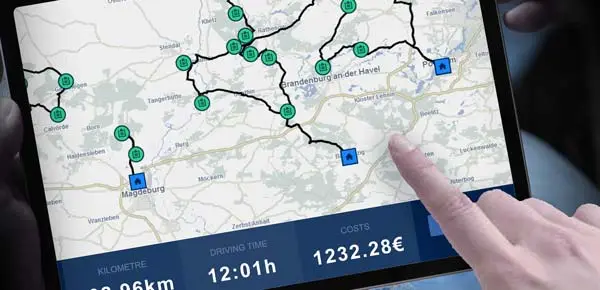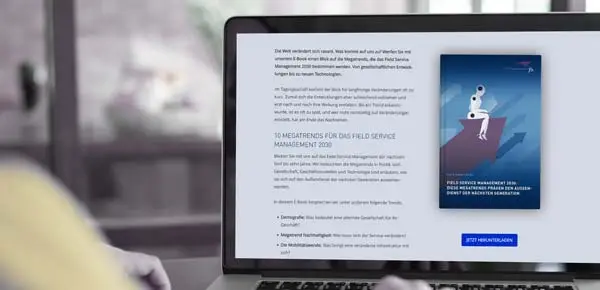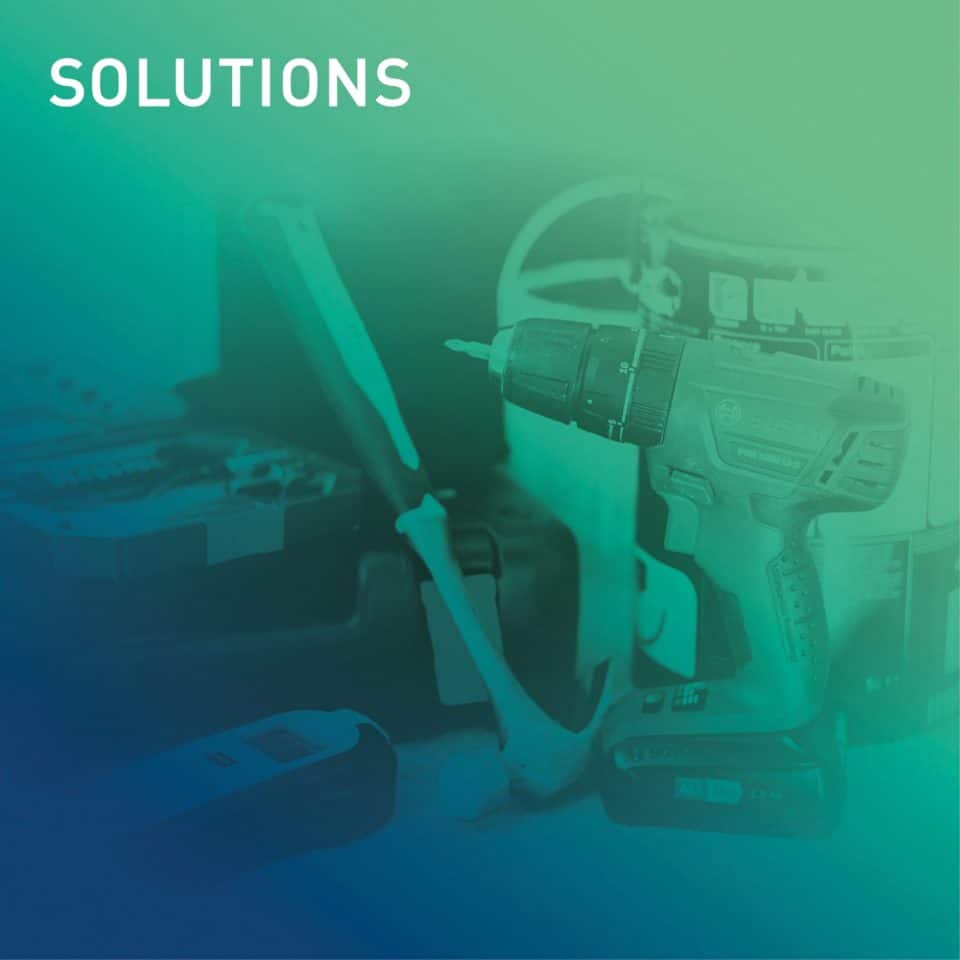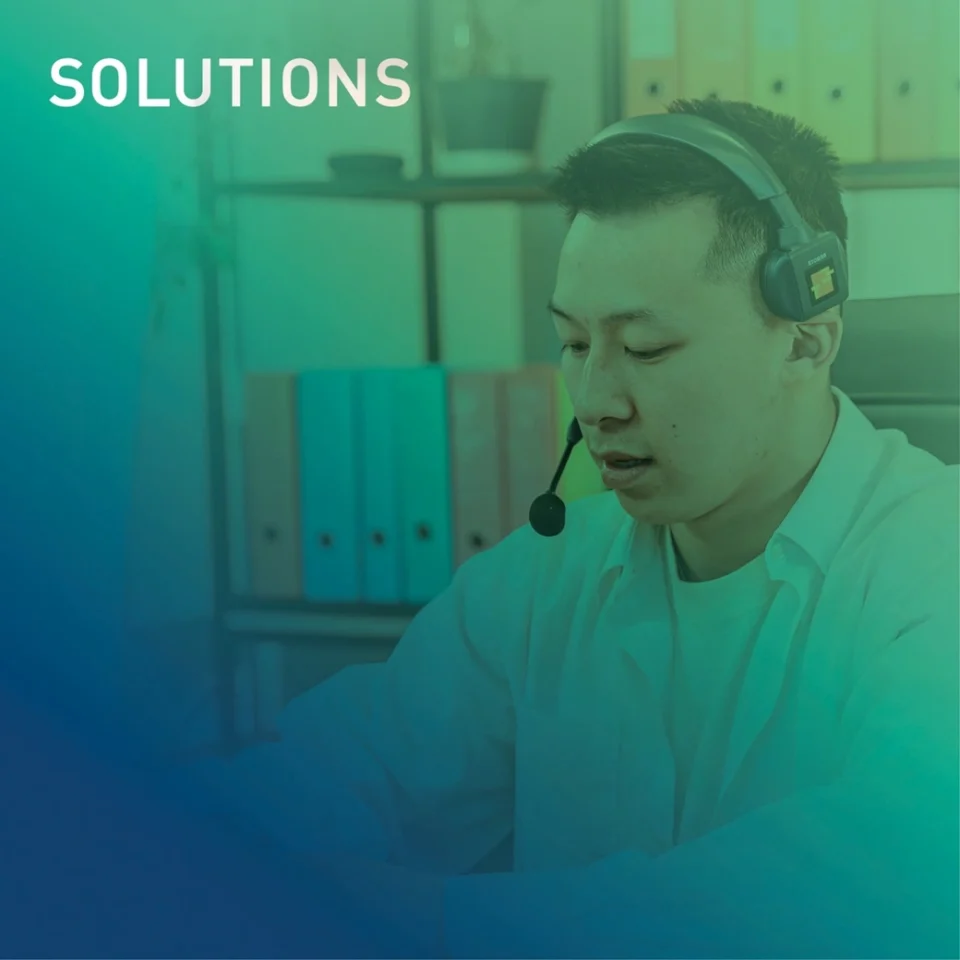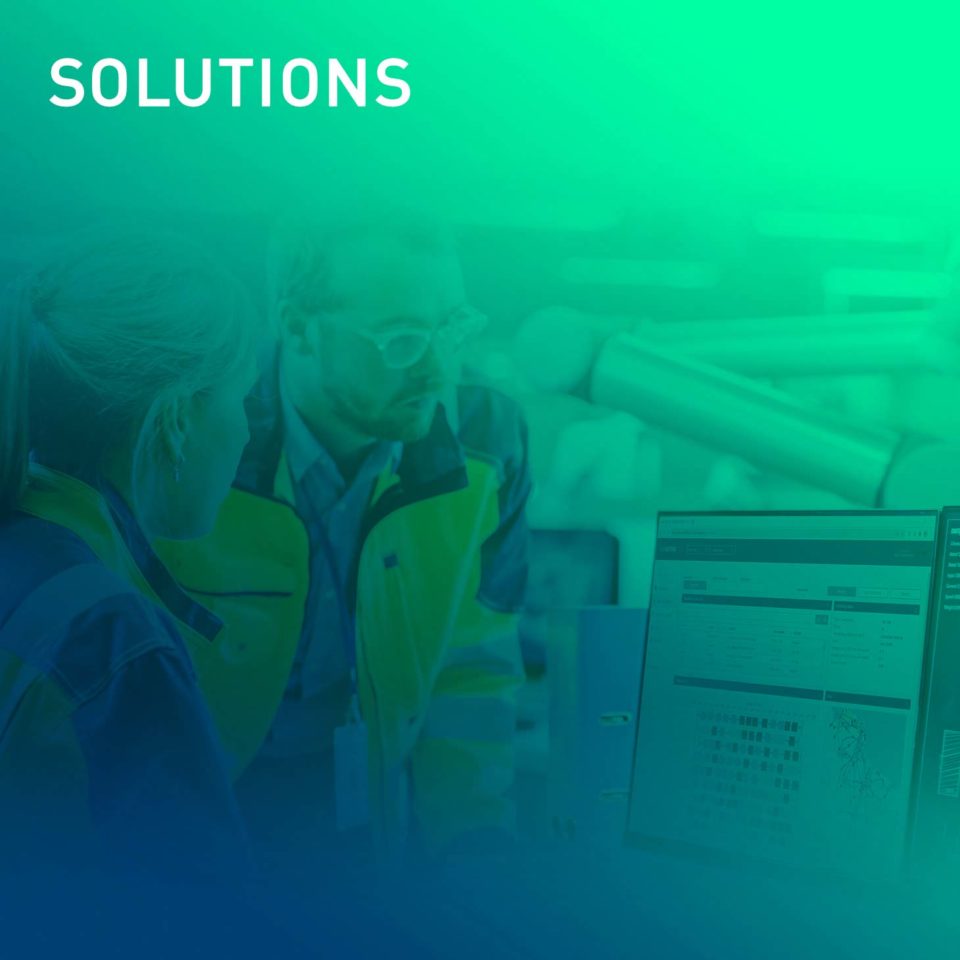
BLOG / SOLUTIONS · LOGISTICS SOFTWARE
TREND REPORT: THE LOGISTICS INDUSTRY AND LOGISTICS SOFTWARE
10 June 2021 · James Alex Waldron
Just like the economy as a whole, almost every logistics trend is characterised by three main topics; sustainability, digitalisation, and a transparent supply chain. In order to address these major issues, an increasingly individualised training of staff naturally plays an important role.
LOGISTICS TREND 1: REDUCTION OF CO2 EMISSIONS
In the coming years, CO2 emissions are to be reduced significantly. The UK, among others, has committed itself to drastically reducing CO2 emissions by 2030. As of today, the EU has pledged that 55% less CO2 is to be emitted into the atmosphere in 2030. In order to guarantee this figure, efficient and innovative approaches are required in the areas of transport, logistics, and traffic. Logistics software solutions can help to achieve these ambitious goals. Efficient route planning, just-in-time delivery, and well-utilised transport modes help become more sustainable and greener. This logistics trend is also fuelled by a rethinking in society. Private households are increasingly attaching importance to climate-friendly products and services in order to make their contribution to climate protection.You can find out how your company can save CO2 emissions here ›
LOGISTICS TREND 2: E-MOBILITY
Especially in urban areas, the topic of electric mobility will become increasingly important. In this logistics trend, it can be assumed that the 'last mile' of the goods will be carried out by electric vehicle. In the private consumer business, the return of goods has already become increasingly important. It is not for nothing that large logistics companies such as Deutsche Post or DHL are coming up with specially developed e-cars that meet these requirements of the logistics industry. But e-mobility is not only reflected in the further development of motor vehicles. E-bikes and pedelecs are also playing an increasingly important role in large cities. Congestion and traffic can often be avoided or bypassed through the use of so-called cargo bikes. These new mobility options come with new restrictions in the area of route planning. It is crucial here that logistics software has a high degree of flexibility or, in the best case, can already cover said restrictions.
Read more about last mile delivery with cargo bikes here ›
LOGISTICS TREND 3: ENVIRONMENTALLY CONSIDERED ACTION AND WASTE PREVENTION
In terms of sustainability, many home consumers want retailers to take back and recycle used goods. Discarded products are no longer thrown away, but in the best case scenario may even experience a second life. For the transport and logistics industry, however, this also means that structures for returns have to be created. Logistics software tools can simplify processes here for all parties involved. Supply chain management, i.e. the supply chain, must be thought backwards, starting from the end customer. Logistics software and mobile applications offer a solution for this logistics trend. Using a logistics software tool that is available on all digital end devices, private consumers as well as customers in the B2B sector may book appointments for the reversal as described. The second-hand goods can then be collected at a time of the customer's choosing and returned to the original sender or manufacturer. In order to be able to organise this process as efficiently as possible, all common transport service options should be stored in the logistics software.LOGISTICS TREND 4: OPTIMAL CUSTOMER EXPERIENCE IN DELIVERY
In both the B2B and B2C sectors, speed and efficiency in the delivery of goods are becoming more and more important. In the B2C sector, this is primarily of great importance for the e-commerce industry. As a result of the pandemic, the industry has been able to grow very strongly in recent months. However, it is also clear that the logistics trend of e-commerce depends on a smoothly functioning supply chain. This poses new challenges for the transport and logistics industry. Regardless of whether a private customer orders food, consumer electronics or household goods (white goods), customers expect fast and, if possible, flexible delivery. Flexibility has spread to the B2B sector. An example being the semi-conductor shortage. Sectors such as the automotive industry or large mechanical engineering companies are dependent on tight supply chain management. Especially in these industries, the so-called just-in-time delivery plays an important role. This means that the required material or means of production are delivered exactly when they are needed. In order to implement these on-demand deliveries, a sophisticated shipping management is required. This is exactly where intelligent logistics software comes in. With the appropriate features of the logistics software, the needs of the sender, transport service provider and recipient of the goods can be addressed. This applies to both the B2B and B2C sectors.Private and business customers rely on flexibility for ordered deliveries. If necessary, it is therefore necessary for the logistics service provider to quickly adjust delivery dates. By using logistics software, companies can offer ad-hoc deliveries that are within the customer's desired time window. However, the logistics software not only uses the pure supply chain of sender-transport service provider-customer, but also takes into account the real-time traffic situation in order to ensure punctual delivery. Another advantage here is that the vehicles used on the last mile can be used economically. Using appropriate software tools, it is possible to combine deliveries in a region and thus make the best possible use of the vehicles. Integrative logistics software also offers great advantages for end customers. Customers can use the tool to select their desired delivery window and, if necessary, adapt it to their individual wishes. They also find out if the driver is running late due to traffic conditions. The delivery drivers also have the option of contacting the end customers. This would be conceivable, for example, in the event that a delivery is not possible in the desired time slot due to weather conditions. The great advantage for the customer is that they are informed about the whereabouts of the goods 'first hand' and does not have to resort to lengthy email or telephone contacts. For the sender of the goods, the whereabouts or the time of dispatch is also clearly and unambiguously recognisable.
LOGISTICS TREND 5: KPI-BASED PROCESS OPTIMISATION THANKS TO LOGISTICS SOFTWARE
Logistics trend number 5 is a true value-add for management and business leaders. The use of logistics software offers significant advantages, not least in the management of the respective logistics service providers. For example, the disposition of vehicles can be relieved by digital fleet management. At the same time, parameters such as consumption, vehicle utilisation, staff duty time are available in a single application, to name just a few of the advantages. Thanks to a dashboard view within the logistics software, users have the most important KPIs at their fingertips at all times. This gives companies complete transparency over their own logistics processes. This paves the way for data-supported process optimisation and the leveraging of economic potential.LOGISTICS TREND 6: CLOUD HOSTING
The sixth logistics trend is cloud hosting. By hosting logistics software in the cloud, business processes can also be optimised at any time during ongoing operations. However, the cloud solution also requires appropriately certified data centres, as well as encrypted communication channels to ensure the highest possible security standards for all parties involved.In order to be able to guarantee secure operation at all times, regular staff training is essential. Here, too, digital solutions can be used. Whether it is the digital retrieval of training documents for staff in the control centre or safety-relevant information for mobile staff. Another aspect that should not be underestimated is proactive prevention through appropriate cyber security. Here, it is important that employees in logistics handle the corresponding digital tools carefully. Continuous staff training is essential here. Only in this way can all the advantages of the logistics software be exploited.
Read here whether a cloud solution is the right choice for you ›
JUST ONE STEP AHEAD OF EVERY LOGISTICS TREND
One thing is clear: logistics software makes it easier to implement rapidly changing framework conditions. A powerful and integrative IT infrastructure with appropriate software tools offers the possibility to act quickly. Digital infrastructures make it possible to digitally map all processes from the factory to the end customer. For this purpose, all necessary data is collected and evaluated by software tools so that proactive countermeasures can always be taken if necessary. It is also possible to take seasonal fluctuations into account, as they occur in some industries.REQUEST A DISCUSSION ABOUT TRANSFORMING YOUR MANAGEMENT OF LOGISTICS
To gain an understanding of software tools to assist sustainability, digitalisation, and a transparent supply chain; plus improving the experience for your head office, workforce, and customers book a short demo or contact us at info@fastleansmart.com.
JAMES ALEX WALDRON
UK Marketing Manager
+44(0) 1183 800189
Send email
James Alex Waldron has worked in written communications for over 15 years. Since 2021, he has written for FLS and the Solvares Group on the topics of digital field service transformation and mobile workforce management, and regularly provides insight to the industry press.
